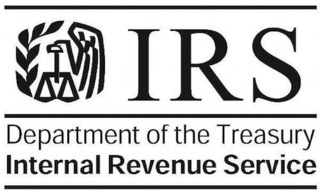The American Institute of CPAs (AICPA) submitted a letter to the Internal Revenue Service (IRS) addressing the plummeting level of service for the Practitioner Priority Service (PPS) telephone line and providing recommendations for improvement. Despite recent efforts by the IRS to ease the burden the backlog has caused for taxpayers and practitioners, the AICPA notes that service levels for the practitioner priority service phone line have been in continuous decline for several years.
“We are hearing from tax practitioners everyday regarding their significant PPS line challenges and the impact those challenges have on their interactions with IRS on behalf of taxpayers,” the letter states. The AICPA submitted comments on the specific PPS line challenges and provided suggestions for improving the experience for tax practitioners and IRS customer service representatives in the following areas:
- Power of Attorney (POA) Issues
- If, at the start of a PPS call, the practitioner indicates that his/her POA likely is not on file, provide a fax number to the practitioner at the start of the call.
- Where a delegated POA is presented and appears in order, do not require the first POA be posted to the central authorization file before recognizing the delegated POA.
- Ensure PPS customer service representatives are consistently educated in proper taxpayer business entity titles.
- IRS should allow use of POAs that are signed by the taxpayer and the representative calling in – even if it is not yet signed by the other listed representatives.
- Transcripts
- Restore providing internal screen-print type transcripts over the phone during PPS calls.
- Restore the IRS message line (transcripts).
- Eliminate the “law line” – the line used to provide interpretations of law.
- Accounts Management versus Automated Collection System
- Restore the ability to grant cycle holds with accounts management staff.
- Empower automated collection systems to resolve more account issues.
- Authorize PPS customer service representatives to grant 180-day holds where correspondence was sent in.
- General Recommendations
- Staff the PPS line again with highly trained, highly empowered personnel.
- Discontinue asking practitioners for their social security numbers and birth dates.
- Enhance the new automatic return call system.
- Empower PPS customer service representatives from one line to handle all types of calls, whether Business Master File, Individual Master File or Exempt Organization.
- Require that all PPS customer service representatives accept and consider submission of correspondence, documentation and other communication by taxpayers or their representatives through e-services or facsimile.
- Allow PPS customer service representatives to process and post extensions.
- Provide more supervisor availability.
- Enable PPS customer service representatives to handle international issues and international taxpayers and enable representatives to apply first-time abatement in international situations, such as international penalties.
- Prohibit PPS customer service representatives from answering a call when their shift ends within the next 15 minutes.
- Investigate certain systemic call answering issues.
“The recommendations we’ve provided to the IRS are important adjustments that could drastically improve service for countless practitioners and their clients. They would also serve to empower customer service representatives and enable them to perform their duties more efficiently,” said AICPA Vice President of Tax Policy & Advocacy, Edward Karl, CPA, CGMA. “We strongly urge the IRS to consider implementing these recommendations as part of their plan to reduce the backlog and improve services and believe that doing so will have a significant positive impact on services provided by the IRS.”
Thanks for reading CPA Practice Advisor!
Subscribe Already registered? Log In
Need more information? Read the FAQs
Tags: Income Taxes, IRS




